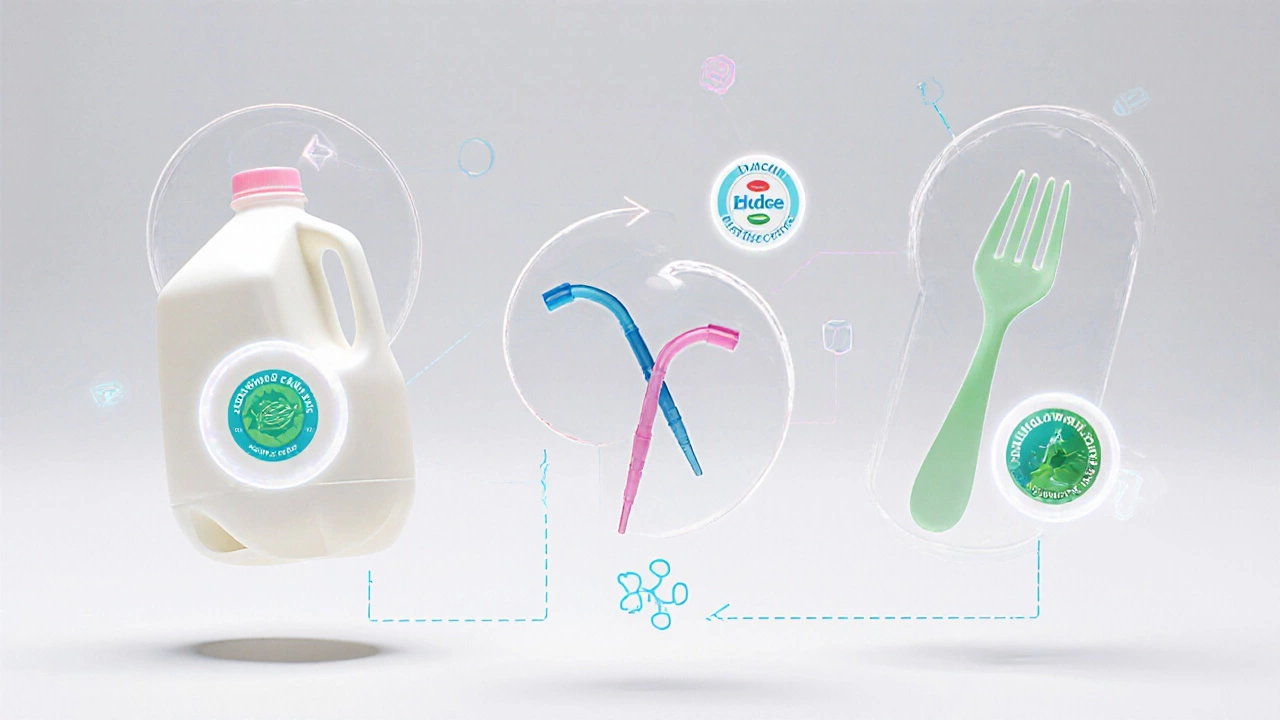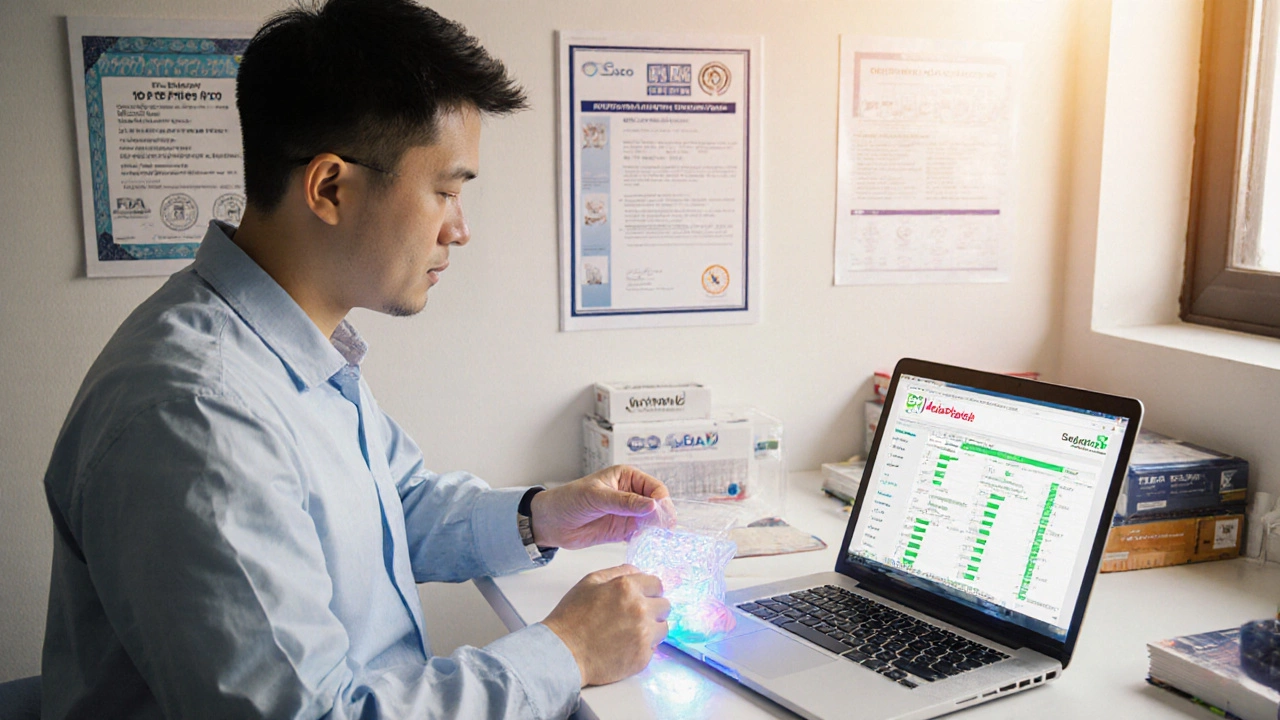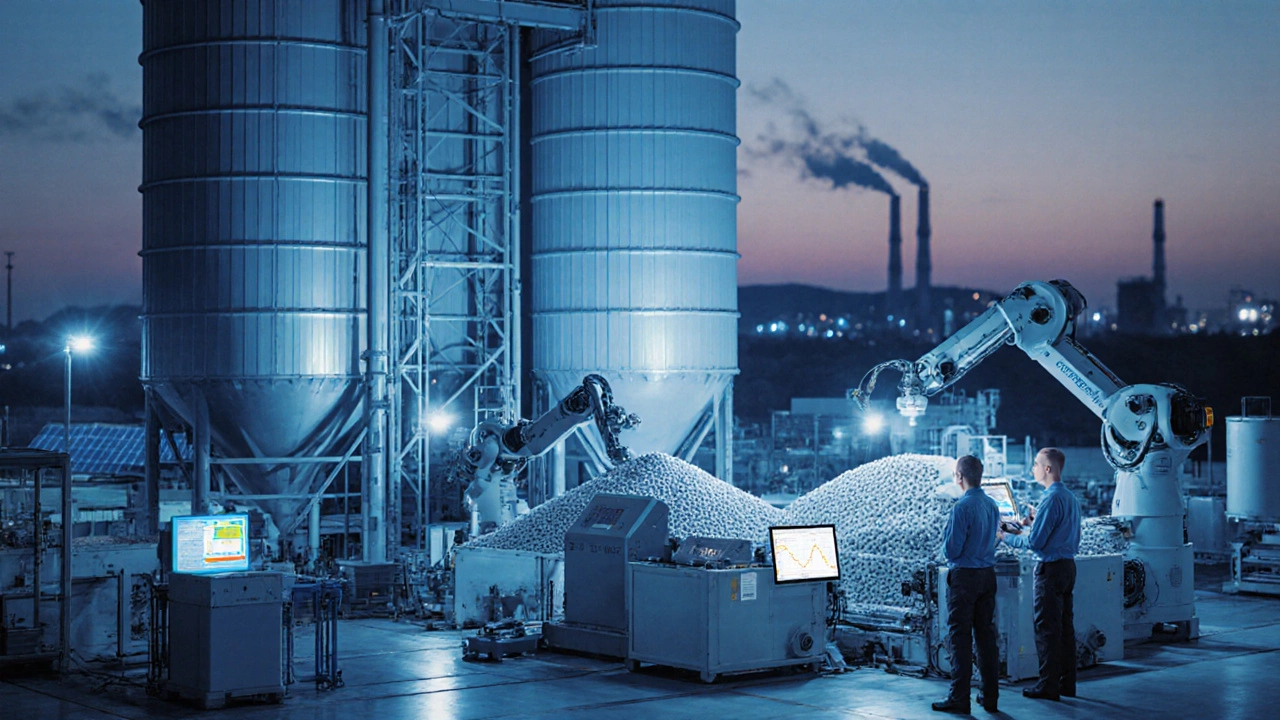There’s no such thing as "the best" plastic company if you’re asking for one single name that rules them all. Plastic isn’t one thing-it’s hundreds of materials, made in thousands of ways, for everything from medical devices to grocery bags. The company that makes the best HDPE for milk jugs isn’t the same one that makes the clearest polycarbonate for eyeglass lenses. So when someone asks, "Which is the best company of plastic?" they’re really asking: "Who makes the most reliable, high-quality plastic materials for my specific need?"
What kind of plastic are you talking about?
Not all plastics are created equal. The material you need determines the company you should work with. Polyethylene terephthalate (PET) for soda bottles? That’s a totally different game than polypropylene (PP) for food containers or polyvinyl chloride (PVC) for pipes. Even within the same polymer, performance varies by grade, additives, and processing method.
For example, Dow is a global leader in polyethylene and polypropylene production, supplying over 15 million metric tons annually to packaging, automotive, and construction industries. Also known as Dow Inc., it operates 120+ manufacturing sites worldwide and holds over 1,200 active patents in polymer science. But if you need high-purity medical-grade silicone rubber for catheters, you’re looking at Shin-Etsu Chemical is a Japanese multinational that dominates the global medical silicone market with over 40% share, producing materials compliant with ISO 10993 and USP Class VI standards. Also known as Shin-Etsu, it has been producing silicone elastomers since 1926 and supplies 9 of the top 10 medical device manufacturers..
There’s no universal winner. The best company depends entirely on your application.
Top plastic manufacturers by material type
Here’s who leads in key plastic categories as of 2025, based on production volume, quality control, and industry reputation:
| Plastic Type | Top Manufacturer | Key Applications | Why They Lead |
|---|---|---|---|
| Polyethylene (HDPE/LDPE) | Dow | Bottles, films, containers | Consistent melt flow, low contamination, global supply chain |
| Polypropylene (PP) | ExxonMobil Chemical | Food packaging, automotive parts | High heat resistance, low odor, FDA-compliant grades |
| PET | Indorama Ventures | Soda bottles, textile fibers | World’s largest PET producer, 100% recycled content options |
| PVC | Formosa Plastics | Pipes, window frames, medical tubing | Vertical integration from raw materials to finished profiles |
| Polycarbonate (PC) | Trinseo | Electronics housings, safety glasses | High clarity, UV-stable grades, low internal stress |
| Medical-grade Silicone | Shin-Etsu Chemical | Catheters, implants, seals | Zero extractables, biocompatible, ISO-certified production |
| Bioplastics (PLA) | NatureWorks | Compostable packaging, disposable cutlery | Only commercial-scale PLA producer using corn starch feedstock |
What makes a plastic company "best"?
It’s not about size. It’s not about advertising. It’s about three things: consistency, compliance, and collaboration.
Consistency means every batch of resin you get behaves the same way-same melt index, same color, same tensile strength. One bad batch can ruin a whole production run. Companies like Dow and ExxonMobil run real-time spectroscopy on every ton of material. Their QC labs test for contaminants down to parts per million.
Compliance is non-negotiable in regulated industries. Medical, food, and pharmaceutical packaging require materials that meet FDA, EU 10/2011, or ISO 10993 standards. Shin-Etsu doesn’t just claim their silicone is safe-they provide full traceability documents with every shipment. That’s not optional. It’s the cost of doing business in those markets.
Collaboration separates good from great. The best companies don’t just sell pellets. They work with you. They run trials. They adjust formulations. They help you solve injection molding warpage or extrusion die build-up. Formosa Plastics has application engineers on-site at many of its largest customers. They don’t wait for complaints-they show up before problems happen.

Who to avoid
Not all plastic suppliers are equal. Some cut corners. Here’s what to watch out for:
- Companies that don’t provide material safety data sheets (MSDS) or technical datasheets
- Suppliers who can’t prove their resin is free from phthalates, BPA, or heavy metals
- Those who won’t let you test samples before bulk orders
- Companies with no ISO 9001 certification
- Those offering prices that are 30%+ lower than market leaders-unless you know exactly what you’re sacrificing
A buyer in Mexico once chose a cheap Chinese supplier for PP pellets. After three months, their bottle caps kept cracking in cold weather. The supplier claimed it was "customer handling." Turns out, the resin was regrind mixed with virgin material-no testing, no documentation. The company lost $200,000 in recalls and damaged reputation.
Small businesses and startups: who can you trust?
If you’re a small company, you don’t need to buy from Dow. But you still need quality. Here are three reliable mid-tier suppliers that serve SMEs well:
- Plastic Solutions Inc. is a U.S.-based distributor that sources from certified manufacturers and offers small-batch testing and custom blending for startups. Also known as PSI, it has been serving independent molders since 1998 and maintains a library of 300+ material specs.
- GreenLine Polymers is a European supplier specializing in recycled and bio-based plastics with full lifecycle documentation for ESG reporting. Also known as GLP, it partners with TerraCycle and provides CO2 footprint data per kg of material.
- AsiaPlas Direct is a Singapore-based distributor that connects small buyers with factory-direct suppliers in China and Thailand, with third-party inspection services. Also known as APD, it offers sample kits with batch numbers traceable to original production runs.
These companies don’t have the scale of the giants-but they offer transparency, flexibility, and real support. For a startup making eco-friendly packaging, that’s more valuable than a billion-dollar brand name.

Future trends shaping the plastic industry
The plastic industry isn’t standing still. Three major shifts are changing who wins:
- Recycled content mandates: The EU’s Single-Use Plastics Directive now requires 30% recycled content in PET bottles by 2025. Companies like Indorama and Veolia are investing billions in chemical recycling tech.
- Bioplastics scaling up: NatureWorks’ Ingeo PLA now competes on price with conventional PP in disposable cutlery. New players like Danimer Scientific are entering with PHA materials that biodegrade in oceans.
- AI-driven quality control: Dow and BASF now use machine learning to predict polymer degradation before it happens. Sensors in extruders feed data into models that adjust temperature and pressure in real time.
If you’re choosing a supplier today, ask: "Do they have a roadmap for sustainability?" The companies that don’t will lose market share fast.
How to pick the right plastic partner
Here’s a simple process:
- Define your material needs: What temperature? What pressure? What food contact? What recycling requirement?
- Shortlist 3 suppliers based on material type (use the table above)
- Request free samples-test them yourself under real conditions
- Ask for their latest quality audit report and material certification
- Call their customer service: if they’re slow or vague, walk away
- Negotiate a small trial order before going bulk
There’s no magic company. There’s only the right company for your job.
What is the largest plastic manufacturer in the world?
Indorama Ventures is the largest producer of PET plastic globally, with over 15 million metric tons of annual output. Dow leads in polyethylene and polypropylene volume, while Formosa Plastics dominates PVC production. But "largest" doesn’t mean "best"-it just means highest volume.
Are Chinese plastic companies reliable?
Some are, some aren’t. China has over 10,000 plastic producers. The top 50 supply major global brands with strict quality controls. But many small factories cut corners-using regrind, skipping testing, or falsifying certifications. Always verify certifications, request batch reports, and test samples before committing.
What plastic is safest for food contact?
Polypropylene (PP), high-density polyethylene (HDPE), and PET are FDA and EU-approved for food contact. Avoid PVC unless it’s specifically certified as food-grade, and never use polycarbonate with BPA for food or baby products. Always confirm the resin grade meets FDA 21 CFR 177 or EU 10/2011 standards.
Is bioplastic better than traditional plastic?
It depends. PLA bioplastic is compostable in industrial facilities but not in home compost or oceans. It’s made from corn or sugarcane, so it reduces fossil fuel use. But it still needs energy to produce and transport. For single-use items, recycled conventional plastic often has a lower carbon footprint than new bioplastic. The best choice depends on your waste system and lifecycle goals.
How do I know if my plastic supplier is honest?
Ask for the resin’s Certificate of Analysis (CoA) and trace it back to the manufacturer’s batch number. Call the original producer’s customer service and verify the batch details. If they hesitate or refuse, walk away. Reputable suppliers don’t mind verification-they expect it.
Next steps: what to do now
If you’re sourcing plastic for a product:
- Write down your exact material requirements: temperature range, UV exposure, food contact, recyclability
- Use the table above to find the top 3 suppliers for your plastic type
- Request samples from each-test them under real-world conditions
- Check their certifications and ask for audit reports
- Start with a small order. Test delivery time, packaging, and communication
The best plastic company isn’t the one with the biggest logo. It’s the one that delivers the right material, on time, every time-with proof it’s safe and consistent. That’s the real standard.
